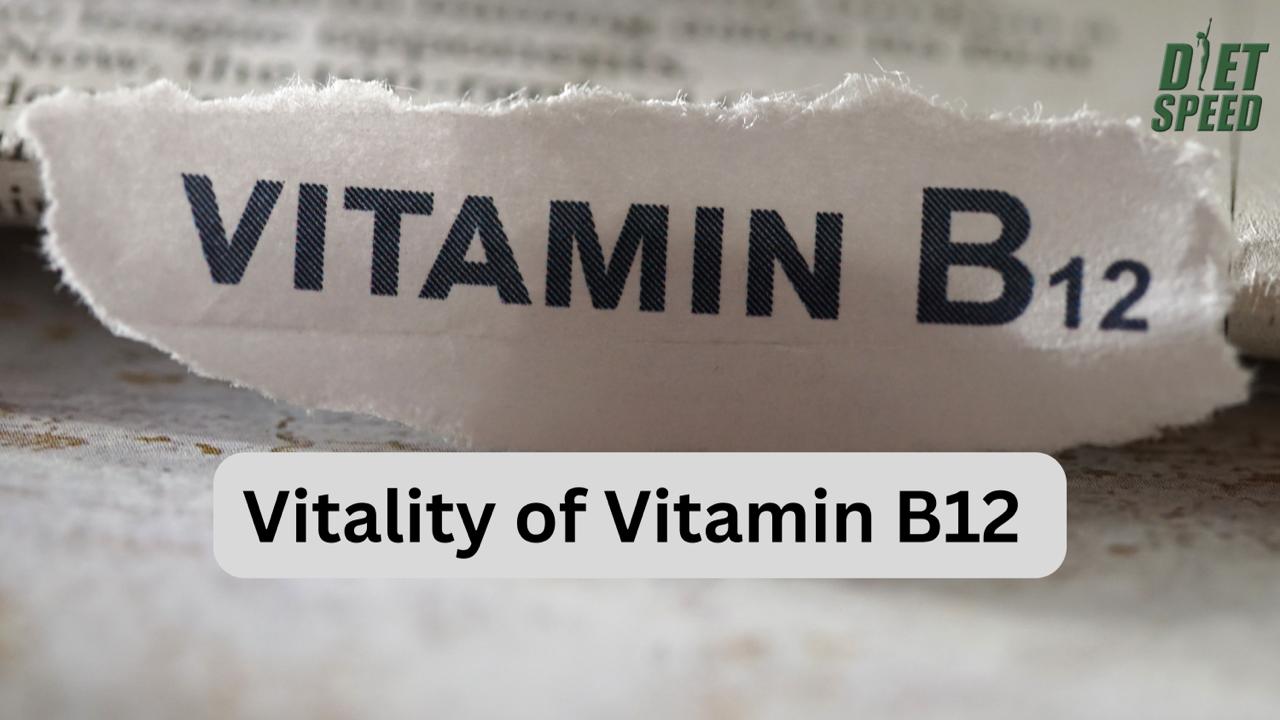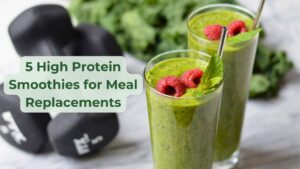Vitamin B12 which is also known as cobalamin. It is proven essential for the health, functioning, and development of nerve tissue, brain, and red blood cells (RBCs). But do you know why is it called cobalamin? It is because Vitamin B12 contains the mineral cobalt and compounds with Vitamin B12 activity are collectively called cobalamins. All B Vitamins help the body convert food or carbohydrates into fuel. This fuel is glucose which is needed and used to produce energy.
Vitamin B12 is naturally present in commonly eaten food around us which includes meat, eggs, and some yeast products. It can also be made in laboratories and is most often taken with other B Vitamins. Other ways of consuming Vitamin B12 are by adding it to your food, using dietary supplements or prescription medicine. Many people suffer from a deficiency of Vitamin B12 and face symptoms like headaches and fatigue. But, the usage of Vitamin B12 is not just limited to treating its deficiencies. It is also used to treat cyanide poisoning and high levels of homocysteine in the blood. Homocysteine can be understood easily by understanding that it is an amino acid and vitamins B12, B6, and folate break down homocysteine to create other chemicals that the body needs. High levels of homocysteine mean that you may have a vitamin deficiency. Without treatment, increased homocysteine levels increase the risk of dementia. Dementia is the inability to remember, think, or make decisions. Dementia interferes with doing activities of our daily routine, along with heart disease, and stroke. Vitamin B12 is further used for cataracts, fatigue, and osteoporosis i.e. a bone disease.
One thing we must note is that every nutrient has its recommended intake value. It is set or developed by the Food and Nutrition Board (FNB) at the National Academic of Sciences, Engineering and Medicine. And is provided in the Dietary Reference Intakes (DRIs). DRI is a general term that is used for a set of reference values used for planning and assessing nutrient intakes of healthy people. These values differ vastly by the age and sex of various people and include the following:
- Recommended Dietary Allowance or RDA – it is the average daily level intake enough to meet the nutrient requirements of nearly all healthy individuals (97% to 99%). It is often used to plan balanced diets rich in nutrients for people.
- Adequate Intake or AI – when one consumes food rich in nutrition up to this level it is assumed to be adequate.
- Estimated Average Requirement or EAR – regarded as the average daily level of intake, estimated to meet the requirements of 50% of healthy individuals. Used to assess the nutrient intakes of people, plan nutrition-rich diets for them, and examine their nutrient intake.
- Tolerable Upper Intake Level or UL – maximum daily intake not related to causing any ill effect on your health.
Table 1: Recommended Dietary Allowance (RDAs) for Vitamin B12 for Indians
| Age Group | Category of Work | Adequate Intake (µg/d) |
| Men | SedentaryModerateHeavy | 2.5 |
| Women | SedentaryModerateHeavy | 2.5 |
| Women | Pregnant women | +0.25 |
| Women | Lactation0 to 6 months7 to 12 months | +1.0 |
| Infants | 0 to 6 months6 to 12 months | 1.21.2 |
| Children | 1 to 3 years4 to 6 years7 to 9 years | 1.21.22.5 |
| Boys | 10 to 12 years | 2.5 |
| Girls | 10 to 12 years | 2.5 |
| Boys | 13 to 15 years | 2.5 |
| Girls | 13 to 15 years | 2.5 |
| Boys | 16 to 18 years | 2.5 |
| Girls | 16 to 18 years | 2.5 |
Benefits of Vitamin B12
Vitamin B12 regulates our bodily functions and ensures:
- Normal functioning of the brain and the nervous system
- Cognitive functioning or the ability to think
- Formation of Red Blood Cells (RBCs)
- Prevention of anemia
- Helping to create and regulate DNA
- Protection of eyes from macular degeneration. Macular degeneration is a problem that causes a person’s central vision to become blurry
- Necessary for energy production
Sources Of Vitamin B12
Vitamin B12 Foods
Originally present in foods of animal origin including fish, meat, poultry, eggs, and dairy products. Plant foods lack the presence of Vitamin B12. But, we can experiment always. A bowl of cereals or nutritional yeasts that have added Vitamin B12 are easy to find and cheap sources of this nutrient. And not to forget, these foods serve as easily digested and absorbed foods not causing any problem to our body.
The following is the list of Vitamin B12 foods you can consume for a Vitamin B12 enriched diet:
- Beef
- Pork
- Ham
- Poultry
- Lamb
- Fish, especially tuna and haddock
- Dairy products like milk, cheese and yogurt
- Eggs
- Some nutritional yeast products
How often have we thought that every healthy food we consume is serving us with all the nutrients? How often do we check the nutritional labels of any packaged food we purchase? For either of them, the answer is a maybe. The following is a list of commonly eaten foods in our daily lives given by the U.S. Food and Drug Administration (FDA). It shows their Vitamin B12 levels per serving.
Table 2: Vitamin B12 levels in selective foods
| Food | Microgramsper serving | PercentDV* |
| Milk, 2% milkfat, 1 cup | 1.3 | 54 |
| Yogurt, plain, fat-free, 6-ounce or 170 grams container | 1.0 | 43 |
| Cheese, cheddar, 1½ ounces or 42.5 grams | 0.5 | 19 |
| Egg, whole, cooked, 1 large | 0.5 | 19 |
| Banana, 1 medium | 0.0 | 0 |
| Bread, whole wheat, 1 slice | 0.0 | 0 |
| Strawberries, raw, halved, 1/2 cup | 0.0 | 0 |
| Beans, kidney, boiled, 1/2 cup | 0.0 | 0 |
| Spinach, boiled, drained, 1/2 cup | 0.0 | 0 |
*DV = Daily Value
Aren’t the levels shocking? Did you know? The U.S. Food and Drug Administration (FDA) has set the Daily Value intake for Vitamin B12 as 2.4 mcg for adults and children aged 4 years or older. Foods providing 20% or more of the Daily Value are considered to be high sources of a nutrient. But foods lower in this percentage can also contribute to a healthy diet.
Dietary Supplements
Vitamin B12 is widely available in a multivitamin or as mineral supplement form. In the form of Vitamin B12 supplements which also contain other B complex vitamins. And also just as Vitamin B12 supplements.
The most common form of Vitamin B12 available in the market as a dietary supplement is cyanocobalamin. It is available in various forms. Like Vitamin B12 tablets, capsules, and sublingual or under-the-tongue preparations. Methylcobalamin is another naturally occurring form of Vitamin B12. It is used by the body more effectively and just like the previous one it is available as a tablet, capsule, and sublingual preparation.
Further, beyond oral dietary supplements, Vitamin B12 is also available as tablets. Research has stated that there are no differences in the efficacy of different sources of dietary supplements of the same.
Prescription Medications
Vitamin B12 can be consumed in the form of cyanocobalamin and various other forms available in the market. They are regarded as prescription medications, usually through a shot directly in the muscle.
Another common form of prescription medicine for Vitamin B12 is the nasal gel spray. It has been found effective in raising vitamin B12 blood levels in adults and children.
Note: Excessive intake of Vitamin B12 has not shown any toxic or harmful effects. But consulting a specialist is always advisable.
Injection
Doctors may advise Vitamin B12 injections for most individuals. Mostly to people with pernicious anemia or inability to absorb Vitamin B12. But its side effects are often kept hidden in the dark. Side effects of these injections can be:
- Pain, swelling, or itching on the injection spot
- Nausea or vomiting
- Headaches
- Dizziness
- Hot flashes
Vitamin B12 Deficiency Causes
The following is a list of factors responsible for Vitamin B12 Deficiency Causes:
- Difficulty absorbing Vitamin B12 from food
- Surgery in the gastrointestinal tract
- Using various medications, for instance, metformin. It can interfere with the absorption of Vitamin B12 in the intestines
- Hereditary factors contributing to the inability to absorb Vitamin B12
- Alcoholism
- Diseases affecting the small intestine
- A poor diet that lacks animal products
- Pernicious anemia is a condition in which the body is unable to absorb vitamin B12 due to a lack of an internal factor and a protein is needed for the same
Vitamin B12 Deficiency Symptoms
Having Vitamin B12 deficiency symptoms leads the way for various other problems as well, which could even be serious. A few are as follows:
- Depression
- Confusion
- Memory problems
- Fatigue
- Memory loss
- Headaches
- Mood changes
- Difficulty concentrating
- Anemia is characterized by menstrual problems, pale skin, weight loss, and a sore tongue or mouth
Effects of Vitamin B12 Deficiency
The effects of Vitamin B12 are varied, they include:
- Lower counts of White Blood Cells or WBCs and Red Blood Cells or RBCs along with platelets as either a combination or separately
- Megaloblastic anemia is a type of anemia that is characterized by large RBCs due to impaired DNA synthesis
- Fatigue
- Pale skin
- Palpitations
- Dementia
- Weight loss
- Infertility
- Glossitis of the tongue – inflammation and swelling of the tongue that makes it appear red and smooth
- Neurological changes like numbness and tingling sensation in the hands and feet
- Depression
In pregnant and breastfeeding women Vitamin B12 deficiency might cause neural tube defects, developmental delays, and anemia.
The body stores about 1 to 5 mg of Vitamin B12 so the symptoms of Vitamin B12 deficiency can take several years to appear.
Groups at risk of Vitamin B12 Inadequacy
Since Vitamin B12 is richly found in animal-based food products. It opens room for various groups to be at an increased risk of Vitamin B12 deficiency. The following is the list of the groups:
Vegans would face a high risk of Vitamin B12 deficiency since their diet would not include any type of animal based food product. Pregnancy and lactation can further worsen the deficiency for vegans. It is very essential for a careful diet plan for vegans that ensure enough intake of Vitamin B12.
Another group is the set of people suffering from pernicious anemia which is a condition that affects the blood. Patients with pernicious anemia do not have enough of a particular protein present in the stomach that allows the body to absorb Vitamin B12.
Another group is the people having small intestine problems. For instance, someone with a surgically shortened small intestine. They would have problems leading to poor absorption of Vitamin B12.
People with Alcohol Abuse Disorder would lack Vitamin B12. As their bodies might not absorb nutrients effectively.
People suffering from diabetes and on medications like metformin. They should regularly get their Vitamin B12 levels checked as metformin has been found to reduce the absorption of Vitamin B12.
Any disorder that affects nutrient absorption will affect the levels of Vitamin B12 specifically and any Vitamin generally in your body.
Conclusion
Every Vitamin has its major role to play in our body and so does Vitamin B12. Vitamin B12 is typically found in animal products and is required by adults in around 2.4 mcg daily. Since it is needed for normal functioning and development of the brain and the nervous system, formation of Red Blood Cells, cognitive functioning, and other crucial life processes.
Vitamin B12 Deficiency can be marked by increased amounts of headaches, fatigue, digestive problems, depression, mood changes, and might as well nerve damage or severe cognitive issues.
Some people are at a higher risk of developing Vitamin B12 deficiency than others. For instance, older adults and those who are unable to absorb nutrients well. Along with vegans whose diets lack sources of Vitamin B12 since they do not consume animal based food products. People who are patients of anemia, alcohol abuse disorder, and diabetes are equally vulnerable to developing Vitamin B12 deficiency.
Most people who consume a balanced diet still do not receive enough and needed amounts of Vitamin B12. This is why it is advised to always check the nutritional labels of packaged foods. And also to keep oneself updated on the daily intake values as prescribed by various institutions. For various other people, the doctors prescribe dietary supplements like Vitamin B12 tablets or injections. Injections can have their share of side effects, but not necessary for everyone to face them.




